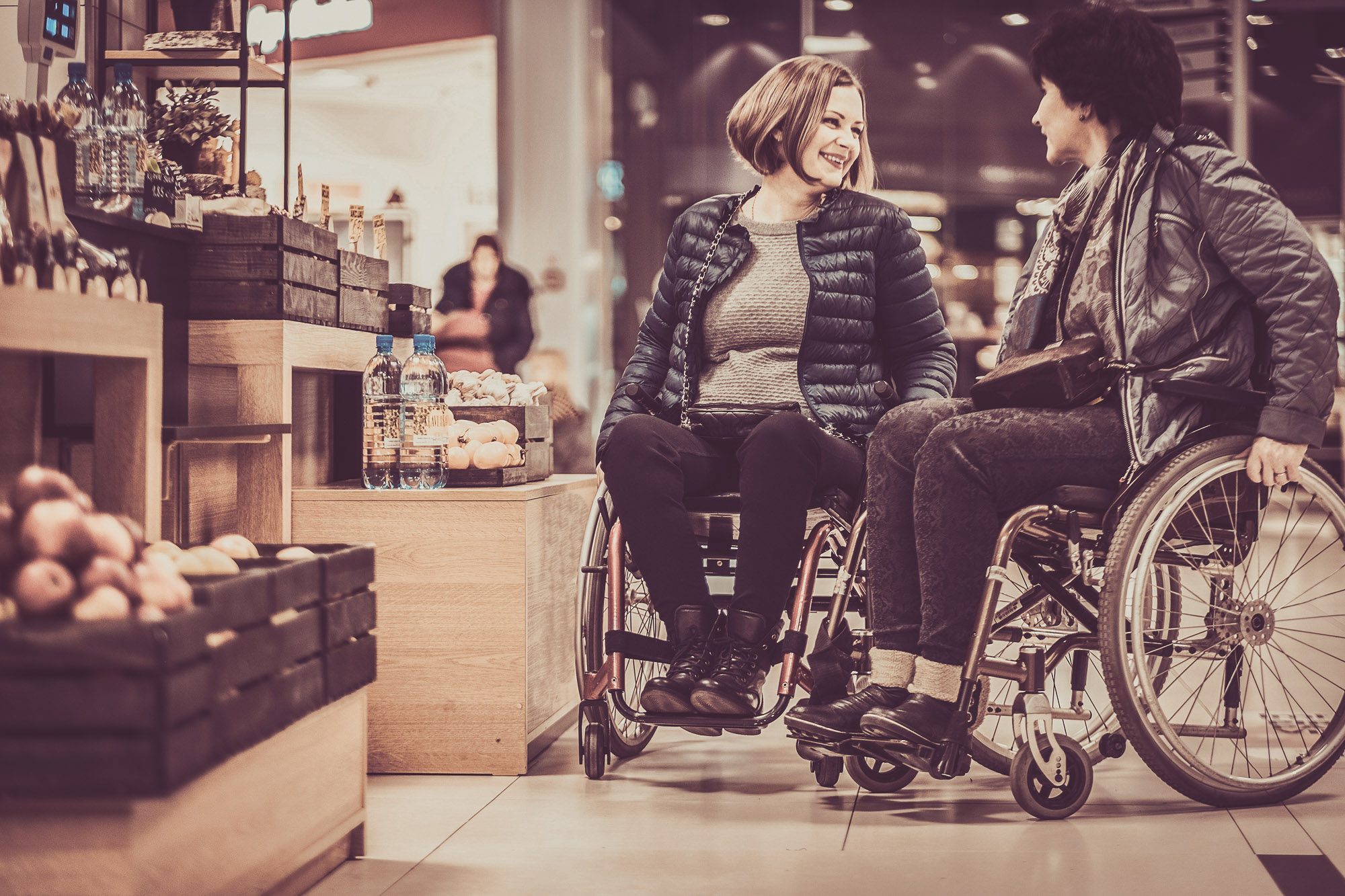Finding a job can be tough for anyone, but it’s even more difficult for disabled people. Disabled workers face many challenges that non-disabled people don’t have to deal with, such as getting into the building and using the toilet. These issues make interviews especially difficult, which is why we’ve put together 5 top tips for succeeding in an interview when you’re disabled!
In the UK, there are over 13 million disabled people, which is around one in five of the population. Disabled job seekers are less likely to be employed than non-disabled individuals, and if they do get a job, their pay packet will be on average £80 per week lower. Disabled employees also have higher rates of sickness absence, despite being unemployed for shorter periods of time. Disabled workers are also less likely to be promoted than non-disabled employees.
Unfortunately, disabled workers have it tough in the job market and this makes interviews even more difficult for them. Disabled candidates need to show potential employers that they can do everything a person without disabilities can do, or else their disability will put them at a disadvantage during the recruitment process. Here are our top tips to help disabled people succeed in interviews:
Top 5 Interview Tips for Disabled People
1.
The first tip is to be prepared. Disabled people may need additional support, such as a signer or reader during the interview process. It’s also wise to let your potential employer know that you’ll need some time at each stage of the interview process and how much time this will take. For example, if you have learning disabilities, it might help if they read out loud the question and you can answer them a little more slowly. Disabled people may also need to take medication during an interview, so make sure your employer knows about it beforehand.
2.
The second tip is to focus on what you have to offer rather than what’s stopping you from getting the job. Disabled people are often told that it’s their limitations that are stopping them from getting on, which is unfair. Disabled people have the same skills and abilities as non-disabled individuals and if you can show your potential employer how these qualities will benefit their business, they’re more likely to hire you. Disabled people also bring a unique perspective that employers can’t get elsewhere – we’ve all heard of companies like
Apple or Microsoft that started out with a small team of disabled people. Disabled employees are also likely to be more loyal because they’re less likely to find another job elsewhere.
3.
There’s no need for employers to feel sorry for you, which is why your third tip is not to ask for special treatment. Disabled people have the right not only to work, but to work just as hard as everyone else. Disabled people may ask for special treatment when it comes to interview questions, such as asking that they not be asked about their disability. However, if an interviewer asks you why you have a certain restriction or limitation at work, don’t shy away from answering them honestly – employers are looking for candidates who can handle difficult situations and it shows that you’re ready to deal with anything. Disabled employees are also entitled to reasonable adjustments in the workplace, such as making sure their employer has easy access for wheelchair users or installing a stairlift.
4.
In addition to this, your fourth tip is not to stress too much about what support you need during an interview. Disabled people are often given additional support in the interview process, such as having a signer or reader. Disabled employees may also need to take medication during an interview, and it’s important for employers to know about this ahead of time. Disabled candidates don’t have access to special equipment like non-disabled individuals do so you can provide all necessary information beforehand – it’s okay not to be perfect in an interview. Disabled people are allowed breaks as often as they need them and can ask for a drink or some fresh air if necessary.
5.
Your fifth tip is that you shouldn’t think of disability as just one thing, but rather different abilities and restrictions combined. Disabled employees may have many difficulties to deal with, but not one of them is greater than the other. Disabled people are allowed breaks as often as they need them and can ask for a drink or some fresh air if necessary. Disabled employees also have higher rates of sickness absence, despite being unemployed for shorter periods.
These tips should help you to get through your next interview. Disabled people are often told that it’s their limitations that are stopping them from getting on, which is unfair. Disabled people have the same skills and abilities as non-disabled individuals, and if you can show your potential employer how these qualities will benefit their business, they’re more likely to hire you.
Careers with Disabilities is dedicated to providing access to employment opportunities and disabled jobs for workers throughout the UK. For further support, visit our Disability Advice Hub and our dedicated disabled jobs board for live opportunities for disabled jobseekers near you.











